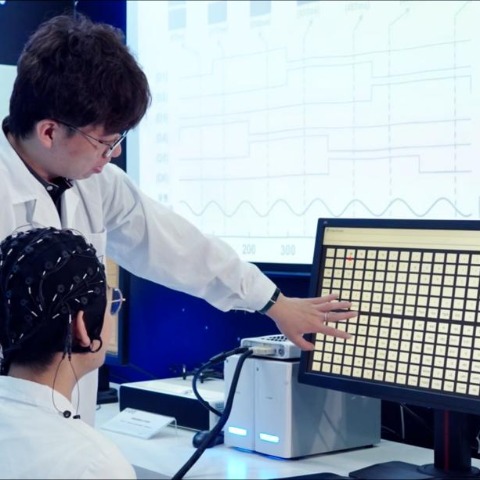



A sci-fi scene became reality during the seventh World Intelligence Congress -which runs from Thursday to Sunday - where visitors wearing a small device found that, without moving their fingers, the words or sentences they wanted to type out appeared on the computer screen.
They simply looked at a virtual keyboard with 216 keys and found that the words they wanted to type out without typing were shown on the screen simultaneously upon the moment they have the idea.
During the conference, the Brain-Computer Interaction and Human-Machine Fusion Haihe Laboratory from Tianjin University officially released the independently developed non-invasive BCI system with a massively large command set and high-speed rate.
The system set a world record for the largest instruction set for a non-invasive BCI, which has been granted patents in China and the United States, it said.
The laboratory said it has developed a new coding paradigm of time-frequency-phase hybrid multiple access and a high-speed spelling operation with up to 216 keys was achieved.

It has an online average information transmission rate of over 300 bits/minute and an average single command output time of only 1.2 seconds, "the highest of its kind in the world", the team claimed.
The BCI technology refers to building a direct connection between the human brain and external devices to allow the brain to "talk" with machines.
It is a core type of technology for the new generation of human-machine interaction and human-machine mixed intelligence.
The technology is a major improvement from the third WIC in Tianjin in May 2019 where a volunteer wearing BCI devices "typed" a complete sentence, "Welcome to the 3rd WIC", on a screen without moving her fingers or thumbs.
The chip the volunteer used was the world's first BCI chip successfully developed by the university — the Brain Talker.

If you have any problems with this article, please contact us at app@chinadaily.com.cn and we'll immediately get back to you.